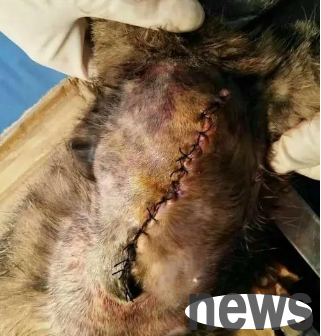In recent years, especially in big cities, more and more domestic pet cats are brought to pet hospitals for professional doctors to perform toe surgery on cats. The reason why more parents have their cats' toes removed is because the cat's nails will scratch furniture and other valuable items at home, and they are also worried about scratching people. Let’s talk about the impact of toe removal surgery on cats. Decaculation removes the cat's bones, tendons, ligaments, and the first knuckle at the tip of each claw. Toe removal removes a vital part of the cat's body and is the most important part of the cat's anatomy. Simply put, a declawed cat is a disabled cat.

Not to mention the physical pain caused by toe removal, it also has a huge psychological impact on cats, which completely makes them lose the ability to climb, chase, hunt and socialize with cats.
According to a 1994 veterinary clinical scientific report from Washington State University, 50% of 163 cats that had their toes removed developed one or more complications immediately after the surgery, such as pain, bleeding, disability, weight loss and other symptoms. Further follow-up of 121 cats after surgery showed that 20% developed ongoing complications, such as infection, sudden weight gain, protruding bones on the claws, intermittent lameness (abnormal walking posture), etc.
70% of cats entering shelters and shelters due to behavioral problems are declawed cats.
25% of cats entering shelters and shelters are purebred cats.
Removing a cat's claws has a far greater impact on the subject than depriving the cat owner of its nails. Because claws serve so many important functions in a cat's life.
1. Cleanliness:
Smooth and clean coat is indispensable for the health and happiness of cats. Temperature control, cleanliness, waterproofing and maintaining the body's breath signals are vital to cats. Research shows that cats spend a large amount of time grooming themselves every day. Not only the typical licking motion, but also repeated scratching. This scratching motion is a key part of your daily cleaning routine: getting rid of itchy skin, removing shed hair and combing out stray body hair. Without claws, neither humans nor cats can scratch themselves effectively. The whole sorting process will be very painful. Even if the owner grooms them every day, it cannot replace the pleasure that natural scratching brings to them. Anyone who has an itch that they can't scratch (or can't reach the itchy area) can relate to the awkwardness of a declawed cat.
2. Climbing:
Climbing is the second instinct of cats. In fact, no matter how much you punish it, it will never stop its desire to climb. If it still tries to climb after the digits are removed, it will be the biggest punishment in its life, because it will no longer be able to grab anything with its claws and toenails. If it runs outdoors, it will be more dangerous. If it is chased by other cats, dogs or hostile people, at the first opportunity, it will quickly run away to higher ground to avoid the enemy's attack. When it jumps up onto a wall, fence, or tree, it uses its claws that no longer exist to grip the surface. It's too scary for it, and it will find itself sliding downwards and finally falling in front of its enemy.
3. Defense:
When facing the enemy, when it needs to protect itself, it will be in a very disadvantageous situation. As it swung its claws, it had lost its defensive weapons. Usually, just the pain caused by those tiny sharp claws can make it hover on the edge of life and death.
4. Hunting:
Not only does it destroy the cat's ability to clean, climb, and defend itself, dedigitation also destroys the cat's ability to hunt.
"Ah", you might say,"it doesn't matter to my cat; it's a well-raised family pet. "
However, this carefully raised cat will quickly die of hunger one day when he is lost on the street or becomes homeless. For predators with sharp claws, the necessary grasping action will become a useless gesture.